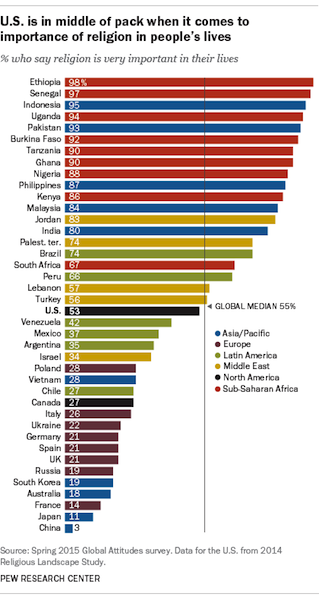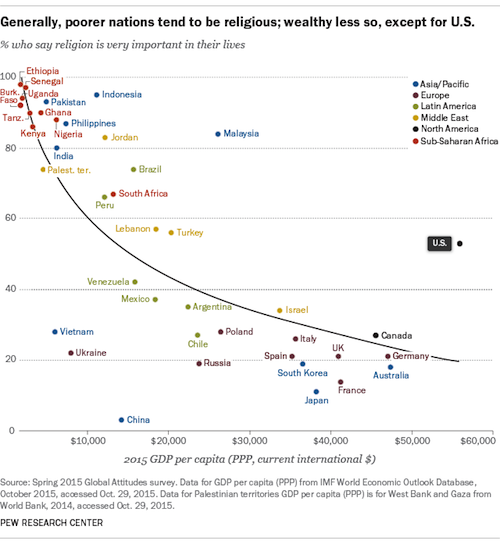Pew publishes surprising new data on religion in Israel, Palestine and the region.
We often hear that Israelis and Palestinians are more religious than other national groups, or at the very least are becoming more religious. This, they claim, makes any solution to the conflict more difficult to reach. A new Pew Research Center report reveals some rather surprising results vis-a-vis religion in Israel and Palestine.
Thirty-four percent of Israelis said that religion is “very important” in their lives, placing them at the top of the bottom one-third of countries listed, and — unsurprisingly — the lowest in the Middle East.

Meanwhile, 74 percent of Palestinians said that religious is very important in their lives. On the face of it, this is a very high statistic, but the poll also finds that there is an inverse correlation between wealth and religiosity. Put simply, people in poorer nations tend to place more importance on religion than those in wealthier nations, and Palestinians are significantly poorer than Israelis.
When placed on a wealth/religion curve, both the Israelis and Palestinians are very close to the curve. Israelis are slightly more religious than what one would expect when taking into account their level of income, while the Palestinians are slightly less religious in relation to their level of income. Among both nations, however, religion plays a fairly standard role in people’s lives relative to the rest of the world.
According to the report, the United States — the wealthiest nation included in the 2015 global survey based on gross domestic product per capita — is a notable exception to this trend. Americans are much more likely than their counterparts in other economically advanced nations to say religion is very important.
In my opinion, these findings support the hypothesis according to which religion is not some great barrier to Israeli-Palestinian compromise, and that control of resources (in other words: a struggle over land) is far more significant for understanding the conflict.
This article was first published in Hebrew on Local Call. Read it here.



